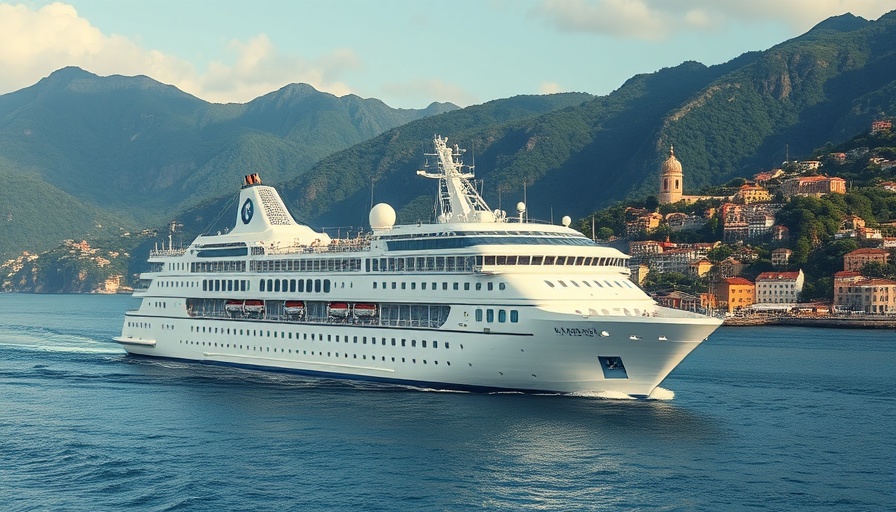
Nice Takes Bold Step Against Cruise Ship Pollution
The city of Nice, a cherished spot on the glamorous Côte d’Azur, has made headlines with its decision to potentially ban large cruise ships that pollute its waters and contribute to overtourism. Mayor Christian Estrosi unveiled plans to restrict any vessel carrying more than 900 passengers from docking in the city’s beautiful ports starting July 1, 2025. This move signals a growing trend in cities worldwide, where unwanted tourist traffic is leading to substantial reforms aimed at protecting cultural integrity and local ecosystems.
Environmental Impact and Local Voices
Tourism is often viewed positively for its economic impact, yet black clouds convene on this perspective with the reality of pollution and overcrowding. Mayor Estrosi’s statement, “The cruises that pollute… have no place with us,” echoes the sentiments of many local residents and environmental advocates who find that the influx of cruise passengers detracts from the city's beauty. Local ecosystems are already suffering the effects of overexposure to high visitor numbers and the waste produced by large vessels. Establishing limits not only helps preserve Nice's natural allure but also fosters a sustainable tourism model that benefits both residents and visitors alike.
A Trend Charting Towards Sustainable Tourism
Nice's vision connects with a broader movement among European cities looking to manage tourism sustainably. Just as Nice takes a stand, places like Amsterdam and Barcelona have already initiated restrictions on cruise ships to mitigate the negative impacts associated with mass tourism. Venice, a city overflowing with cultural treasures, has begun charging entry fees to reassert control over tourist numbers. As visitors migrate to lesser-known cities for authentic experiences, it becomes crucial for these locations to safeguard their identity while welcoming guests responsibly.
Nice’s Innovative Future: Plans for Sustainable Ports
The efforts don’t stop at a cruising ban. Mayor Estrosi has proposed investing over $7 million to electrify the city’s ports, a project aimed at reducing environmental harms. Building a new maritime terminal dedicated to smaller boats suggests an intentional pivot towards more eco-friendly practices. This is not just about reducing the scale of visits but redefining them to elevate quality and minimize impact on local life.
The Bigger Picture: What Other Cities Can Learn
Nice's proposed changes serve as a learning opportunity for other popular tourist destinations and not just in Europe. The local perspective must be central to any significant tourism policy adjustment. By examining the impacts of travel on cities like Nice and its neighboring Cannes, cities across the globe can implement their strategies to balance hospitality with sustainable development.
As the world becomes more conscious of environmental issues and the saturation of tourist destinations, Nice is leading the charge towards a more sustainable and respectful tourism model. It raises important questions: How can we travel without compromising the locales we visit? What will the future of tourism look like when citizens are prioritized over economic gain? It's a matter of social and environmental justice, and it begins by listening to the voice of the local community.
 Add Row
Add Row  Add
Add 




Write A Comment